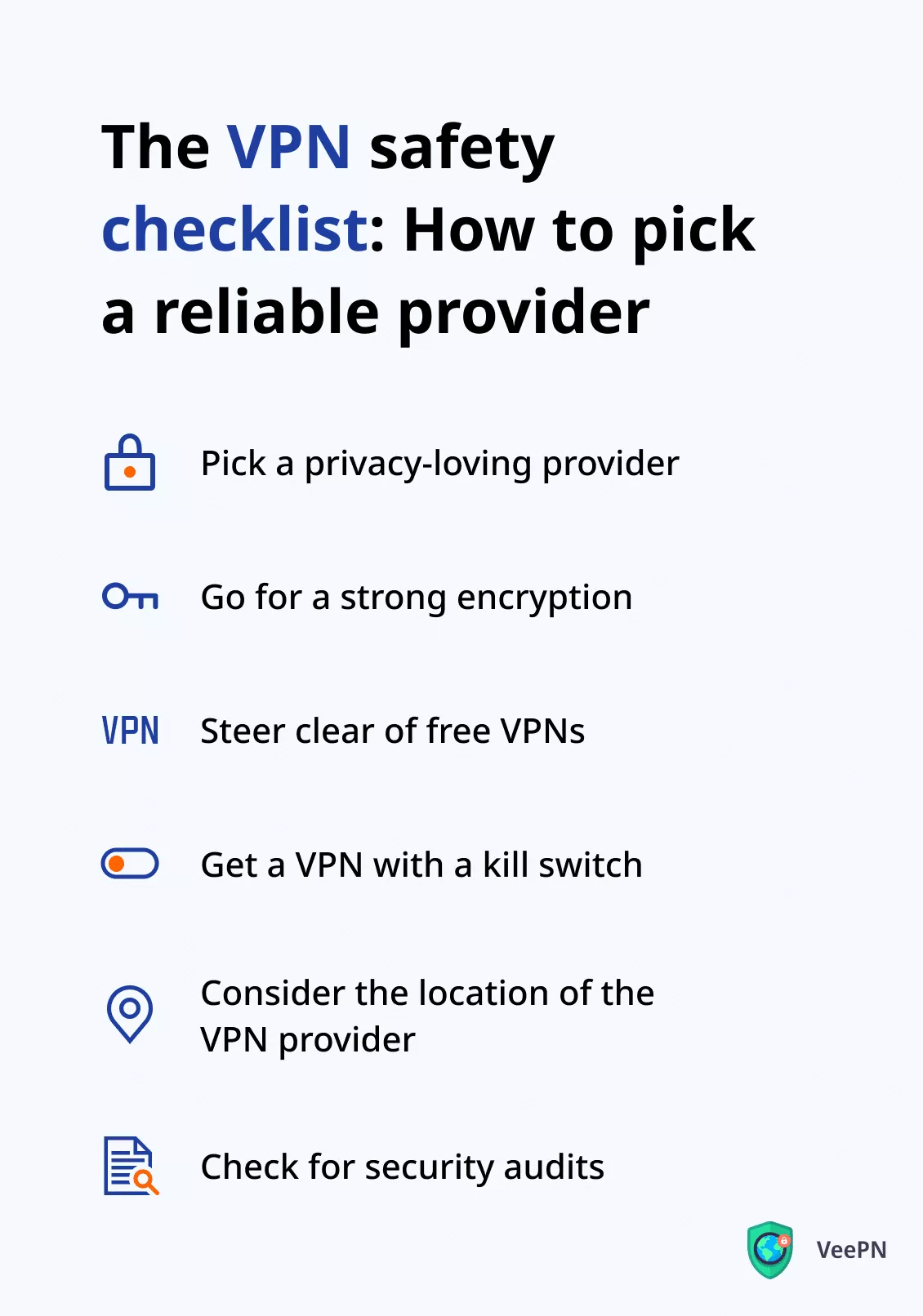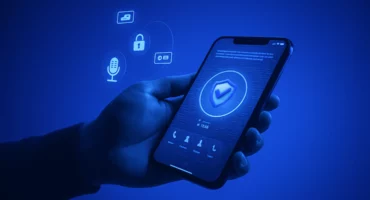Can Police Track VPN and How to Avoid This?
Ready to surf the web with complete privacy? A VPN is your trusty digital shield in this case. But is it that sure of a deal against all third parties, the police including? That’s a common fear among VPN users. Fear no longer — in this blog post, we’ll dive into the nitty-gritty of how law enforcement agencies track VPNs and how you can make sure your data is protected at all times.

How can police track a VPN?
Ready to hide your identity and surf the web with a VPN? Not so fast! The police might have a trick up their sleeve — they can track users’ online activities through a VPN. This is possible due to two main reasons:
1. If there’s a warrant
If the police have a warrant, they have the authority to request information about you from your Internet service provider (ISP) and your VPN provider. Here’s how it works: the police go to your ISP and ask for information such as your IP address. But if you’re using a VPN, your ISP can’t see your information — it’s encrypted. Instead, they’ll see that you’re using a VPN and direct the police to your VPN provider. Whether your VPN provider will give up your information depends on different factors, like the laws in the area and the VPN’s privacy policy (more on that in a bit).
2. If there are vulnerabilities in the VPN software
With a VPN on, the user’s online activities and data are encrypted. But, if the VPN software has security flaws and vulnerabilities, the police (or any other third party, for that matter) can use them to “break into” the VPN and see what data is being sent and received.
So technically, the policy could track a VPN. But here’s the deal. The cooperation of a VPN provider with the police isn’t a sure thing. And here’s why.
Factors determining a VPN’s cooperation with the police
Yes, just because there’s a chance that the police may attempt to track your VPN doesn’t mean they’ll be successful. Various factors determine this outcome, including but not limited to:
- Location. The jurisdiction of the police and the VPN provider can play a big role in whether they’ll cooperate or not. Different countries have different legal requirements and if the VPN provider is based in a country with strict data protection regulations, like Switzerland or Panama, the police may have a hard time accessing your data.
- Privacy policies. Some VPN providers have strong privacy policies that don’t allow them to hand over sensitive user data to anyone, while others may not be as strict.
- Legal gray areas. In some countries, like the United States, Australia, and Canada, the laws around privacy and data protection aren’t very clear. This lack of clarity creates a legal gray area that makes it challenging for VPN providers to protect their users’ data from the police. For example, a country may have multiple laws that conflict with each other, making it difficult to determine which law should be followed. Also, there may be differences between regions within a country regarding privacy laws and regulations. This creates confusion and uncertainty for companies working in those areas.
Overall, the bottom line is that unless a VPN firm decides to cooperate, the authorities like police, FBI, or CIA won’t be able to follow the activity of VPN users. So, while the police may try to track you through your VPN, it’s not a guaranteed success.
But if they are successful and privacy laws and unclarities aren’t in the way, what data can a VPN provider hand over?
What information a VPN provider can give to the police
If the path is clear, a VPN provider could be asked to give up sensitive info, like connection and usage logs. Let’s learn more about those:
- Usage logs. These logs include visited websites.
- Connection logs. These records include times of connection, data usage, users’ real IP address, and an IP address assigned by a VPN.
- No logs. Some VPN providers keep no logs of your VPN activity, except for information needed for efficiently running the service, (such info doesn’t expose you). VeePN is one of them (stay tuned for more info).
Tips for choosing a reliable VPN provider
Looking for a VPN that won’t let you down? We’ve got the insider tips! Here’s how to choose a VPN provider that’ll keep your data secure.

- Pick a privacy-loving provider. Look for a VPN that gives two hoots about your privacy and has a clear privacy policy where it’s honest about which data it does and doesn’t share. That said, go for VPNs located outside the jurisdiction of 5/9/14 alliances.
- Choose a provider with strong encryption. Choose a VPN that uses strong encryption standards, like AES-256, to protect your online activities and information. After all, encryption is like a lock on your online diary!
- Steer clear of free VPNs. Don’t be tempted by the word free because it’s not actually true. Free VPNs often cost in poor protection and functionality. Besides, they can sell your data to third parties for revenue (they have to run their service somehow, right?)
- Get a VPN with a Kill Switch. This feature is like a bodyguard for your online activities — it’ll automatically disconnect you from the Internet if your VPN connection drops. This way, it prevents you from data leaks.
- Location, location, location. The location of the VPN provider matters. A lot. As we said before, some countries have stricter privacy laws than others. So it’s better to pick a provider located in a privacy-friendly country, like Panama, Switzerland, or Iceland.
- Check for security audits. A reputable VPN service provider will have undergone independent security audits to make sure their systems and user data are secure. It’s like a health check for your VPN.
By following these tips, you’ll be able to choose a VPN provider that’ll keep your data safe and help you avoid being tracked. Happy VPN-ing! But wait…with which provider?
Get the ultimate online protection with VeePN
With so many VPNs out there, it can be tough to know which one to choose. But, we’ve got good news (read a reliable VPN service) for you. Welcome VeePN!
Located in privacy-friendly Panama, VeePN is the real deal when it comes to online privacy and security. With top-notch encryption algorithms, a strict No Logs policy, and a reliable Kill Switch, you can be sure that your online activities are kept under wraps. And the best part? VeePN’s got your back with super-fast connection speeds and easy-to-use apps for all your devices. No more buffering or complicated setups. Just safe browsing with peace of mind and solid protection for your data.
So why wait? Get VeePN today, try it risk-free, and enjoy a faster, safer and unrestricted Internet. All with one service.
FAQ
Is it legal to use a VPN?
Yes, using a VPN is a common and legal way to protect your online privacy and security. However, note that the legality of using a VPN may vary in different countries, with some countries placing restrictions on their use. Before using a VPN, it’s recommended to research the specific laws in your country and the country where the VPN provider is based. Besides, while VPNs provide privacy and security benefits, they can also be used for illegal activities, so it’s important to use a VPN responsibly and within the bounds of the law.
Can my IP address be traced if I use a VPN?
When you use a VPN, your Internet traffic is redirected through a server run by your VPN provider. This means that instead of your IP address, the website or service you’re using sees the IP address of the VPN server instead of your real one. So, in theory, your online activities should be much more difficult to trace back to you. But to make sure that your online activities are truly protected, you need to choose a reputable VPN provider with strong privacy policies. VeePN is one of them. Take a look at more details in our article.
Can you still get caught using a VPN?
Using a VPN can help mask your online activities and protect your privacy. But it’s not a guarantee you’ll never be caught. For example, some governments and organizations may have the technical capabilities to bypass VPN encryption, monitor Internet traffic, and trace IP addresses. However, a reliable VPN provider gives you a high-level privacy protection and greatly reduces your risks of being caught.
Can police track IP address?
Police can ask for information about an IP address from an ISP or VPN provider. However, the level of cooperation they receive depends on various factors, such as the jurisdiction and the country’s privacy laws. Learn more in this article.
VeePN is freedom



